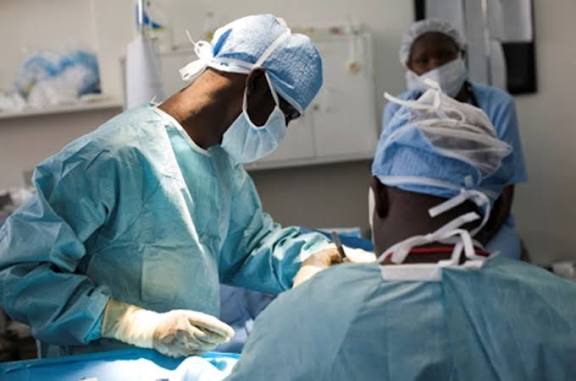
The African Health Observatory Platform on Health structure and Policies (AHOP) has said that Nigeria’s health system is executing its activities at only 45 per cent, below the African regional average of 56 per cent.
There are reports that Nigeria’s profile was published by the Health Policy Research Group, University of Nigeria, Nsukka, which serves as the Nigerian National Centre for AHOP.
This is according to the first analysis of its report on Country Health System and Services Profiles (CHSSPs), which are comprehensive reviews of African countries’ health systems and services.
It was established with support from the Federal Ministry of Health and Social Welfare and the World Health Organisation–African Region (WHO-AFRO).
This is accommodated in a statement signed by Prof. Obinna Onwujekwe, Director of Nigeria’s National Centre for AHOP and Coordinator of the Health Policy Research Group at the University of Nigeria.
Prof. Onwujekwe said the report, to be unveiled on Oct. 8, showed that health results had not matched the series of sector reforms and disburse in the country, with government expenditure among the lowest in Africa.
According to the profile, health system performance outputs, including access to, ask for for, and quality of health services, have better over the last decade but remain inadequate to achieve universal health coverage by 2030.
It said in spite of progress, Nigeria’s absolute coverage of essential services was relatively low at 1.7 per cent below the African regional average.
The report stated that private health providers currently deliver 70 per cent of all health services, despite accounting for only 35 per cent of health facilities.
It further stated that about 80 per cent of Nigeria’s health infrastructure was dysfunctional, impeding health care delivery and resulting in losses of one billion U.S. dollars annually to outbound health tourism.
The report stated that out-of-pocket expenditure accounts for 75 per cent of total health spending, with only one in ten Nigerians having access to health insurance or risk-pooling schemes.
Core health system outcomes, it stated, including coverage of health services, health security, patient satisfaction and financial risk protection, were all below regional averages.
This, it noted, could be primarily due to sustained underinvestment, poor health infrastructure and inadequate engagement of available human resources.
With 3.95 medical doctors for every 10,000 people, the report noted that the health personnel provision in Nigeria was above the regional average of 1.5, but below the suggested threshold of 4.45 doctors per 10,000 people.
It said weak health infrastructure and inadequate engagement of available human resources had created gaps in the provision of essential health services, noting that only 51 per cent of childbirths were attended by skilled birth attendants.
